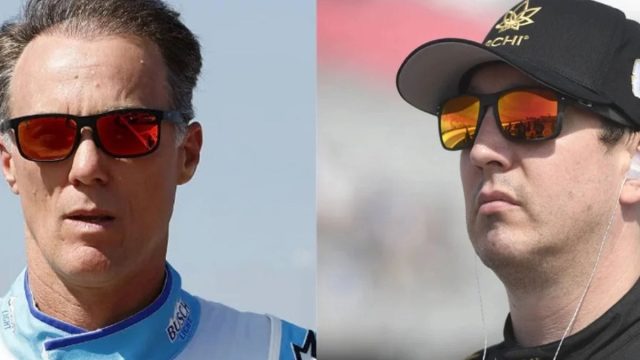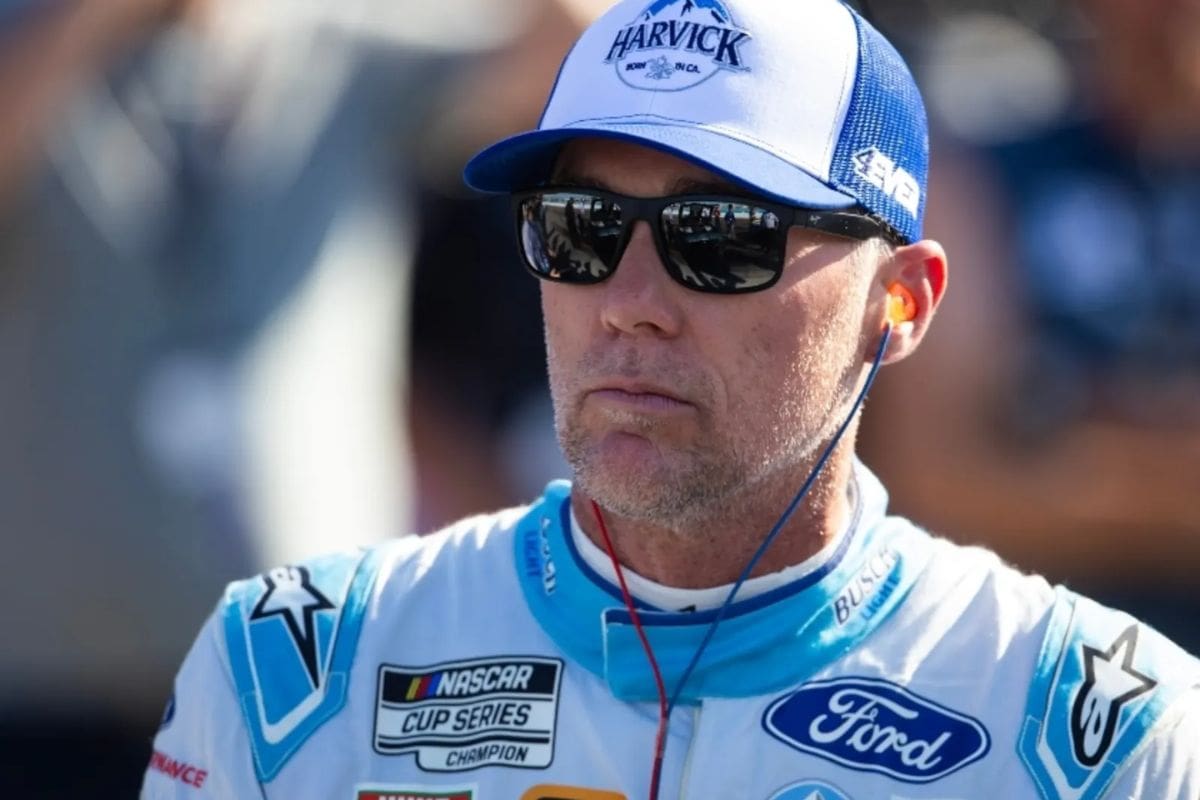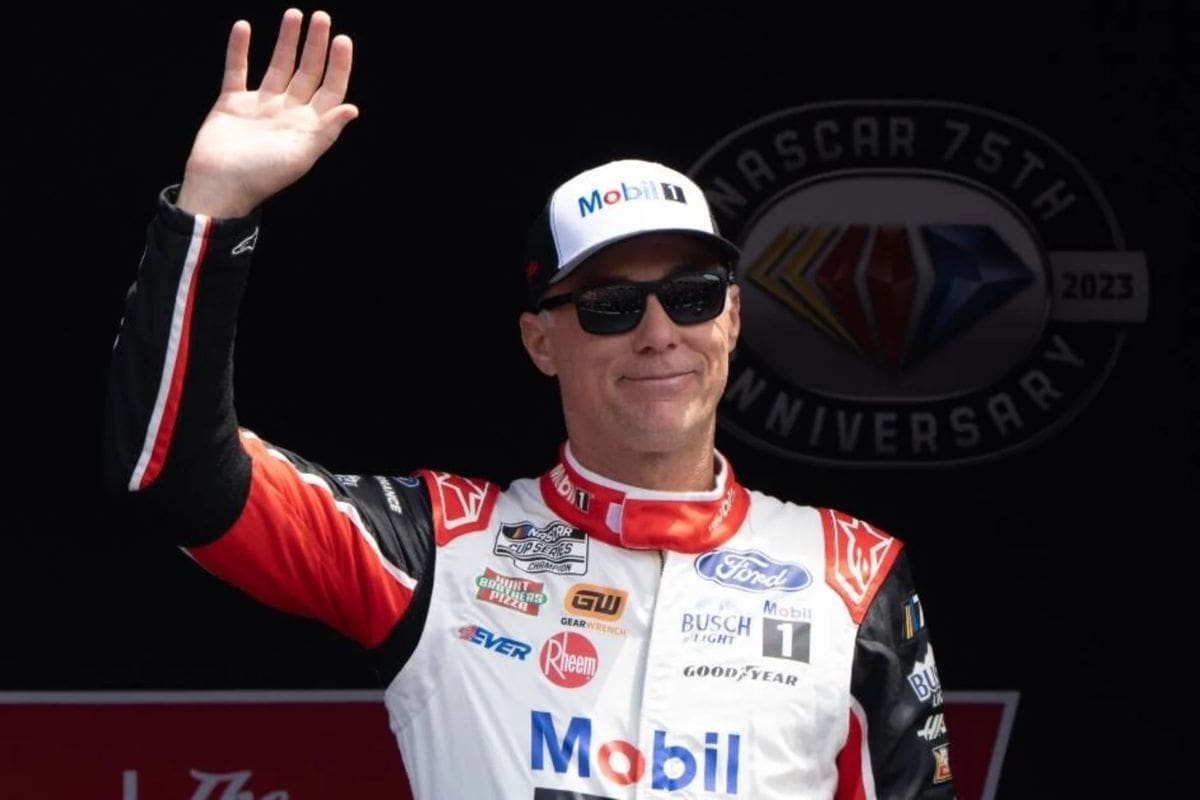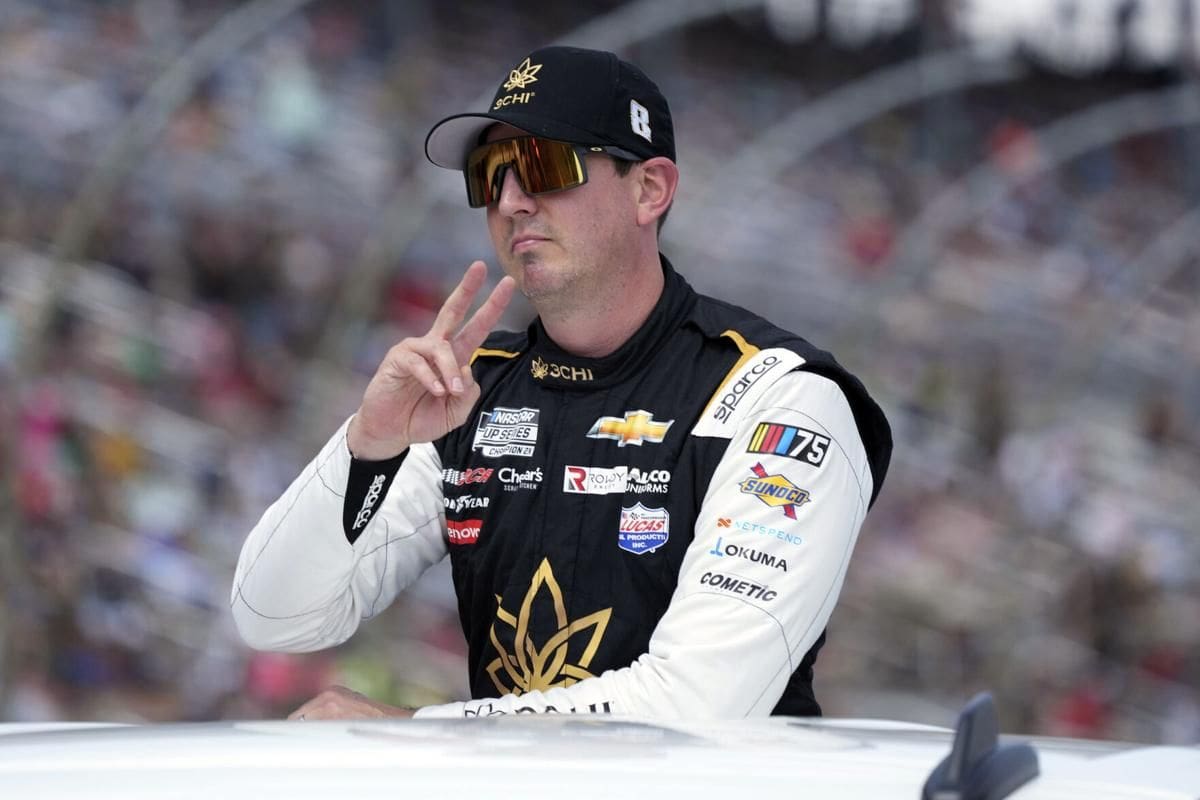Kevin Harvick Points Finger at Kyle Busch: Recent remarks by Kevin Harvick regarding Kyle Busch‘s performance during the Brickyard 400 have stirred considerable debate within the NASCAR community. Harvick’s pointed critique of Busch’s late-race tactics, particularly the collision with Denny Hamlin, raises questions about decision-making under strain and its implications for the season ahead. His call for a more disciplined approach invites broader reflection on the strategies that define success in racing. As the season progresses, the impact of such incidents on championship aspirations becomes increasingly critical—what does this mean for Busch’s course moving forward?
Key Highlights
- Kevin Harvick criticized Kyle Busch for reckless driving leading to a 25th-place finish in the Brickyard 400.
- Busch’s collision with Denny Hamlin was highlighted as a significant tactical error during the race.
- Harvick emphasized the need for Busch to adopt a more disciplined racing strategy and stay calm under pressure.
- Consistent performances and avoiding aggressive overtakes are crucial for Busch to regain momentum this season.
Kevin Harvick’s Criticism of Kyle Busch’s Performance
In a pointed critique, Kevin Harvick has scrutinized Kyle Busch‘s recent performance, particularly highlighting the driver’s self-inflicted missteps during the Brickyard 400 that contributed to his disappointing finish. Harvick’s analysis suggests that Busch’s struggles in the 2024 NASCAR Cup Season are not merely a consequence of bad luck, but rather stem from critical errors that undermined his race strategy and execution.
During the Brickyard 400, Busch found himself embroiled in a collision with Denny Hamlin, which ultimately culminated in a lackluster 25th-place finish. Harvick contends that this incident was representative of Busch’s tendency to engage in reckless behavior when the stakes are high. Harvick’s commentary emphasizes the need for a more disciplined approach, particularly as the competition intensifies.
Moreover, Harvick’s critique extends beyond just this singular event; it reflects a broader concern regarding Busch’s adaptability under strain. While the NASCAR circuit is inherently fraught with unpredictability, Harvick argues that drivers of Busch’s caliber must cultivate a mindset that prioritizes tactical decision-making over impulsivity. This, he posits, could be the key to reversing Busch’s fortunes as the season unfolds.
Harvick’s Analysis of the Incident
Kevin Harvick’s assessment of the Brickyard 400 incident highlights a significant turning point in Kyle Busch’s racing strategy, revealing a pattern of over-aggression that jeopardizes his performance. Harvick pointed out that Busch, despite being in contention and passing competitive drivers like Denny Hamlin, made a vital error by overdriving a corner, resulting in a collision that ultimately ruined his race. This incident emphasizes a troubling trend for Busch, who has encountered increasing difficulties throughout the season.
“I feel like Kyle is driving way over his head. His cars have been off the pace on certain weeks, but in this scenario, he’s passing Denny Hamlin, he’s in the top five, and just way overdrives the corner, driving into the side of Hamlin and wrecks himself.” – Harvick
Harvick’s analysis can be distilled into three key observations:
- Overdriving Risks: Busch’s tendency to push beyond his limits in pivotal moments has led to avoidable accidents, reflecting a tactical miscalculation.
- Performance Inconsistencies: Although Busch has shown flashes of speed, his car’s general performance has been erratic, contributing to his current frustrations on the track.
- Need for Caution: The Brickyard incident highlighted that sometimes the priority should be to secure points and finish races, rather than aggressively pursuing overtakes that can backfire.
Harvick’s Advice for Busch
Harvick’s insights highlight the significance of making calculated decisions on the track, urging Busch to prioritize finishing races over chasing aggressive overtakes. With a history of five DNF finishes in the last eight races, Busch’s recent performance shows the need for a shift in approach. Harvick emphasized that while Busch has faced circumstances beyond his control, the Brickyard 400 incident was a clear case where better judgment could have led to a stronger finish.
“He’s been in scenarios where it hasn’t been his fault, but this one is 100% on him, with a car that was running in the back for part of the day but wound up in the front, making a pass, inside the top 5, you’ve got to finish those.” – Harvick
In NASCAR, the ability to adapt and make tactical choices is vital. Harvick advised Busch to focus on securing solid finishes instead of risking everything for marginal gains. This shift in mindset can not only improve his standings but also build fundamental momentum heading into future races.
As the racing season progresses, the ability to secure consistent finishes will be vital for Busch. Harvick’s perspective serves as a reminder that in the domain of competitive racing, sometimes the smartest move is to play it safe, ensuring longevity in both the race and the season.
Harvick’s Prediction on Busch’s Season
The outlook for Kyle Busch’s season appears increasingly bleak as he struggles to gain momentum and secure a playoff position amidst a series of misfortunes. Kevin Harvick’s recent assessment highlights the challenges Busch faces, suggesting that his path to victory is fraught with obstacles. Harvick’s observations reveal a clear contrast between Busch’s current performance and that of other competitors who are also experiencing difficulties.
Three primary factors contribute to Harvick’s somber prediction for Busch’s season:
- Lack of Speed: Unlike drivers such as Denny Hamlin, who, despite their struggles, have exhibited competitive speed, Busch has not shown the necessary velocity to capitalize on race opportunities. This deficiency hinders his capacity to recover from setbacks.
- Consistent Misfortunes: Busch has been entangled in a series of unfortunate incidents that have derailed his race strategies. Each misfortune further compounds the challenges he faces, making it increasingly difficult to secure a win.
- Psychological Impact: The cumulative effect of these struggles weighs heavily on Busch’s confidence. Without a positive turnaround, the mental toll could inhibit his performance even further.
News in Brief: Kevin Harvick Points Finger at Kyle Busch
The recent Brickyard 400 incident highlights the need for tactical refinement in racing, particularly for Kyle Busch.
Kevin Harvick’s critique brings attention to the consequences of reckless driving and the importance of calculated decision-making in competitive environments.
Stressing a disciplined approach could improve Busch’s performance and general season outcomes.
As the season progresses, attention to these critical aspects may determine Busch’s ability to rebound and secure more favorable finishes in future events.
ALSO READ: Kevin Harvick Criticizes Kyle Busch’s Driving That Led to Denny Hamlin’s Collision




